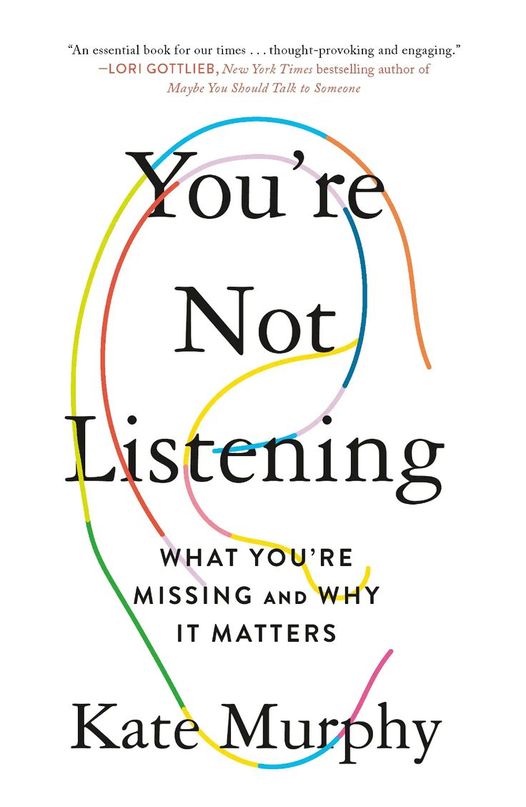In her captivating book "You're Not Listening: What You're Missing and Why It Matters," Kate Murphy argues that in our fast-paced, information-overloaded world, truly listening has become a rare and valuable skill.
Here are 10 key lessons she offers to help you improve your listening skills and reap the benefits for your relationship:
1. We are terrible listeners: Despite thinking we're good listeners, Murphy presents research showing how easily distracted we are, how quickly we interrupt, and how often we prioritize our own thoughts over truly hearing others. Recognizing this first step is crucial for improvement.
2. Listening is a choice: It requires focus, effort, and intentionality. It's not about passively waiting for your turn to speak, but actively engaging with the speaker's thoughts and emotions.
3. Listening benefits everyone: It strengthens relationships, fosters empathy and understanding, improves learning and collaboration, and even benefits businesses and communities.
4. The different types of listening: Murphy identifies various types of listening, like appreciative listening (focusing on emotions), comprehensive listening (understanding details), and critical listening (evaluating information). Recognizing these variations helps you choose the right approach for each situation.
5. The power of silence: Don't rush to fill the silence. Embrace pauses as opportunities to absorb information, gather your thoughts, and encourage the speaker to elaborate.
6. Ask clarifying questions: Go beyond simple "yes" or "no" questions. Show genuine interest and dig deeper by asking open-ended questions that prompt further explanation and exploration.
7. Be mindful of non-verbal cues: Pay attention to body language, facial expressions, and tone of voice, as they often convey unspoken emotions and nuances that words alone may miss.
8. Resist the urge to fix or advise: Not every conversation requires a solution or advice. Sometimes, the most powerful listening involves simply offering empathy and acknowledging the speaker's experience.
9. Practice active listening: This involves summarizing what you heard, reflecting the speaker's emotions, and checking for understanding. It demonstrates attentiveness and encourages further communication.
10. Start small and be patient: Developing strong listening skills takes time and practice. Start by incorporating small changes in your daily interactions, and celebrate your progress along the way. Remember, it's a journey, not a destination.




